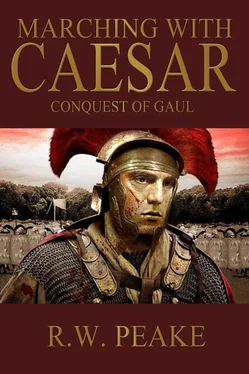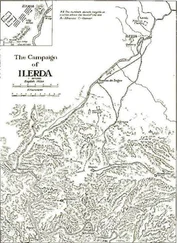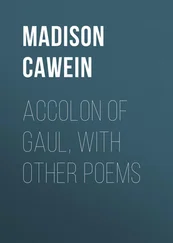R. Peake - Marching With Caesar - Conquest of Gaul
Здесь есть возможность читать онлайн «R. Peake - Marching With Caesar - Conquest of Gaul» весь текст электронной книги совершенно бесплатно (целиком полную версию без сокращений). В некоторых случаях можно слушать аудио, скачать через торрент в формате fb2 и присутствует краткое содержание. Жанр: Исторические приключения, на английском языке. Описание произведения, (предисловие) а так же отзывы посетителей доступны на портале библиотеки ЛибКат.
- Название:Marching With Caesar: Conquest of Gaul
- Автор:
- Жанр:
- Год:неизвестен
- ISBN:нет данных
- Рейтинг книги:3 / 5. Голосов: 1
-
Избранное:Добавить в избранное
- Отзывы:
-
Ваша оценка:
- 60
- 1
- 2
- 3
- 4
- 5
Marching With Caesar: Conquest of Gaul: краткое содержание, описание и аннотация
Предлагаем к чтению аннотацию, описание, краткое содержание или предисловие (зависит от того, что написал сам автор книги «Marching With Caesar: Conquest of Gaul»). Если вы не нашли необходимую информацию о книге — напишите в комментариях, мы постараемся отыскать её.
Marching With Caesar: Conquest of Gaul — читать онлайн бесплатно полную книгу (весь текст) целиком
Ниже представлен текст книги, разбитый по страницам. Система сохранения места последней прочитанной страницы, позволяет с удобством читать онлайн бесплатно книгу «Marching With Caesar: Conquest of Gaul», без необходимости каждый раз заново искать на чём Вы остановились. Поставьте закладку, и сможете в любой момент перейти на страницу, на которой закончили чтение.
Интервал:
Закладка:
Only a day was spent at Samarobriva before word came about a tribe that not only refused to submit, but were openly preparing for war. They were the Nervii, and were reputed to be the fiercest of all the Belgae tribes, adopting what we thought was a rather peculiar custom.
“I heard from one of those Belgae who speak Latin that the Nervii don’t let any traders or merchants of any kind into their lands,” reported Scribonius at the end of the first day’s march as we headed back to the northeast to confront the Nervii.
“ Gerrae ! Why would they do something stupid like that?” scoffed Vibius.
We were seated in our accustomed spots around the fire, chewing the evening bread and bemoaning that the olive oil was already starting to go rancid.
“I asked the same thing,” replied Scribonius as he sat mending a hole in one of his tunics. “The Belgae I was talking to, I think he was a Suessiones, said that they don’t let anything into their country that might make them soft. They think that all the other Belgae have rolled over for Rome too quickly, and they claim that they’ll show the other tribes that we can be beaten.”
“Hmmm, where have I heard that before?” I laughed, and the others joined in, amused by the thought that these Nervii were making the same mistake that a number of other Gallic tribes had already made.
I was surprised when Scribonius did not join in, frowning as he gazed at us. “I don’t know,” he said in his thoughtful way, “the way this Suessiones talked about the Nervii was……different. It wasn’t the usual boasting that these bastards are so good at. He just gave me examples of what make the Nervii different, and feared by the other Belgae.”
Dismissing Scribonius’ words of caution with another joke, we soon moved onto other more important topics, like the never-ending dice game between Romulus and Atilius, and which whore among the camp followers was the best.
After three days of marching, through the same very gently rolling terrain, skirting the patches of woods whenever we came across them, we stopped for the night on the edge of a scrub forest as Caesar’s scouts came to report that the Nervii were camped some nine miles away, having gathered in force at a place where they thought it was likely that we would cross the river Sabis (Sambre). During the night, some of the hostages slipped out of camp, going to the Belgae to warn them of our approach, and to pass on what they thought would be our order of march. Meanwhile, Caesar ordered the pioneers and a group of Centurions, along with an ala of cavalry to move ahead to scout a place for the next day’s campsite. Word shot around the fires that the Nervii were close, so we began to prepare ourselves for a battle, each of us having developed our own little rituals and ways of doing things that is unique to every Legionary. Some men set up little shrines to worship their household gods and the gods that look over the Legions; I preferred a more practical approach and would spend the time sharpening the blade of both my sword and dagger. Running the blade along the stone that evening, I began to dream of a new sword, using the metal that the Gauls used. Despite their swords being too long and inferior to ours for the type of fighting that we did, the quality of the blades themselves and the workmanship had left all of us impressed. Some of the Centurions had commissioned Gallic craftsmen to make swords for them, and I dreamed of having one made for me, perhaps as early as this winter, since I was saving the money that I had not designated as the funds that would free Gaia and Phocas. But first, I had to live to see the winter, and I sighed as I put my weapons aside to begin the inspection of the arms of my tentmates, thinking to myself that a Sergeant’s work was never done.
Breaking camp the next morning, we received our order of march for the day, an everyday occurrence that would prove to be critical on this of all days. Part of the information that the Belgae hostages that fled the previous night gave to the Nervii was that our usual order of march would give them a perfect opportunity for an ambush. Normally, when we were marching with no expectation of contact with the enemy, each Legion’s baggage train is behind them. A Legion’s baggage train on the march, during Caesar’s time, consisted of more than 500 mules, with each animal having a servant or slave to drive it. This was where our tents and extra rations, a mule for each section of men, plus tents for the Centurions, Optios, Tesseraurii, and Signiferi were carried. Then there were the wagons carrying the Legion artillery, along with the other essentials for a Legion on campaign. As you can imagine, gentle reader, all of this takes up quite a bit of space, and while every morning we were aligned in a proper formation with our spacing parade ground-exact, even then the baggage train would extend for almost a furlong, and that was before we started. But on the march, matters get a bit more complicated, since there is a tendency in even the most disciplined army, which we were, to extend that distance a bit, so that the gaps between the animals widened. Although the men of the Legion are orderly and able to maintain the proper distance for the most part, the servants driving the animals, despite being part of the army, are not soldiers and do not value the maintaining of the proper gaps the way we do. Therefore it is not uncommon for a Legion on the march to have a baggage train stretch to almost a quarter mile in length. In Caesar’s army, we tried to march nine miles for every watch, except that we were almost always consigned to marching as slow as the baggage train, which at best would average perhaps six miles for every watch, unless we were on a forced march and left the baggage train behind. That distance translates into time, and adding the gap between the baggage train and the next Legion, usually following a furlong behind the one in front of it, this distance translated into an advantage for a huge army like the Nervii. Their plan was simple; once the first Legion marched by and as soon as the baggage train was in sight, they would swoop out of a large forest that they were hiding in to ambush the leading Legion, counting on the delay that would inevitably happen as the trailing Legions scrambled to the aid of their comrades while first having to make their way past the baggage of the Legion being attacked.
All in all, it was a good plan, but it was doomed to fail because Caesar, as always, was thinking one step ahead of them. The Belgae hostages who escaped to warn the Nervii were right; under normal conditions Caesar marched with the Legion baggage train immediately following it, except Caesar did not consider these to be normal conditions. With an enemy known to be lurking less than a half-day’s march away, Caesar gave orders that we would march in the manner that we did when contact with the enemy was expected, with all the army’s baggage train congregated into one group, which was trailed by the new Legions, the 13th and 14th. When the army finally came into view, masked as we were by a thick stand of trees, the Nervii were confronted by the sight of the Legions, with the 9th in the lead this day and ourselves immediately behind, following each other in close order without any baggage train in between. Our march was delayed by a series of thick hedges, which we were told had been planted by the Nervii as a method of deterring just the type of advance that we were making, and I must say they did an admirable job of it. Being the lead Legion, the boys in the 9th were the ones who had to either find a way around the hedges, or cut through them, making for a considerable amount of work. Most of the time their commander ordered the 9th to cut through them; Roman armies are not much for going around an obstacle. We would much rather just march right through it and will spend the time necessary making the terrain bend to our will so that we can do just that. Once past the hedges, we marched up to the site that the pioneers had selected for the day’s camp, a small hill with a gentle slope down to the river, the camp site being on the north side. The river Sabis is a river in name only, not being much more than three feet deep in that area, and we knew that it would not provide much of an obstacle to the Nervii, whose sentries and pickets we could see watching us from across the river. Being the second to arrive, we received orders to begin building the camp immediately while Caesar sent the cavalry, who had been screening our advance, across the river to chase the pickets away. On the opposite side of the river was another hill, with a forest roughly bisecting it running east and west just at the crest, and as our horsemen went charging up the slope it was into this forest that the pickets fled. Every one of us would have been content to stand or sit watching our cavalry charging into the line of trees, then be repulsed before trying over and over again, but we had a job to do so we grounded our packs to begin the routine of building a camp. While we worked, the other Legions began arriving; we were followed by the 11th, with the 8th behind them, the 12th, and then the 7th. The baggage train was still some way off, moving more slowly as usual and guarded by the new Legions who marched behind it. It was perhaps third of a watch after we arrived that the baggage train came plodding into view, and it was this sight that triggered the Nervii attack.
Читать дальшеИнтервал:
Закладка:
Похожие книги на «Marching With Caesar: Conquest of Gaul»
Представляем Вашему вниманию похожие книги на «Marching With Caesar: Conquest of Gaul» списком для выбора. Мы отобрали схожую по названию и смыслу литературу в надежде предоставить читателям больше вариантов отыскать новые, интересные, ещё непрочитанные произведения.
Обсуждение, отзывы о книге «Marching With Caesar: Conquest of Gaul» и просто собственные мнения читателей. Оставьте ваши комментарии, напишите, что Вы думаете о произведении, его смысле или главных героях. Укажите что конкретно понравилось, а что нет, и почему Вы так считаете.












